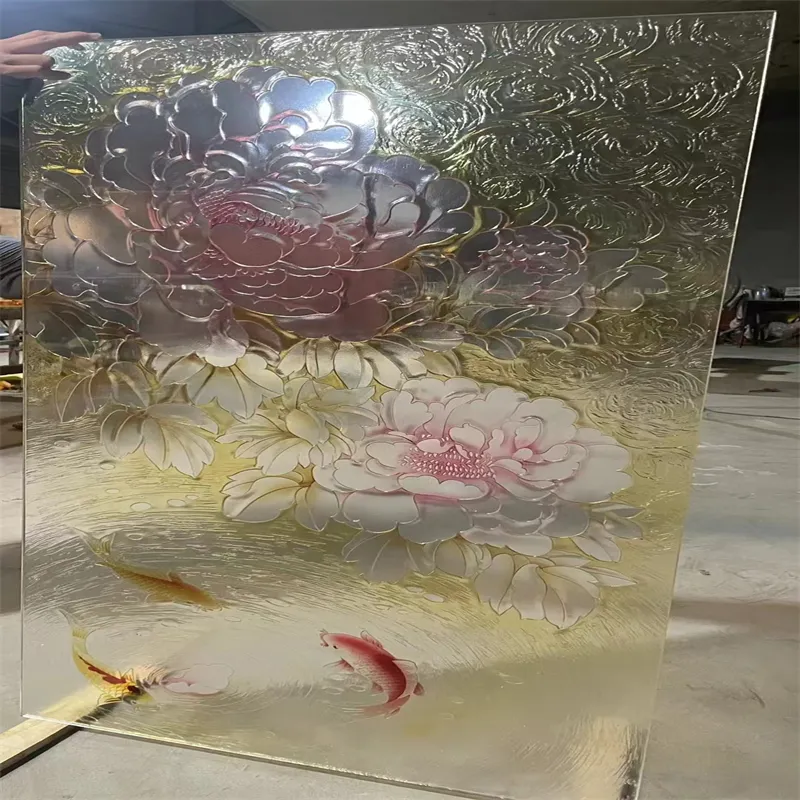Nov . 16, 2024 08:16 Back to list
coated glass meaning
Understanding the Meaning of Coated Glass Features, Benefits, and Applications
Coated glass, also sometimes referred to as reflective glass or coated window glass, is a specialized type of glass that has been treated with a thin layer of materials to enhance its properties. This coating can involve various materials, including metals, oxides, and polymers, which are applied to the surface of the glass using techniques such as sputtering, chemical vapor deposition, or sol-gel processes. The resultant product shows significantly improved performance in terms of thermal insulation, glare reduction, and energy efficiency. Understanding the meaning and implications of coated glass can be extremely beneficial for architects, builders, and manufacturers.
Understanding the Meaning of Coated Glass Features, Benefits, and Applications
Another advantage of coated glass is its capacity to filter ultraviolet (UV) radiation. The application of a UV-blocking coating to glass can protect both individuals and interior contents from the harmful effects of UV rays, which can cause fading and deterioration of fabrics, artworks, and furnishings. This aspect is particularly vital in museums, galleries, and retail spaces where maintaining color integrity and aesthetics is crucial.
coated glass meaning

In addition to energy efficiency and UV protection, coated glass also plays a vital role in achieving privacy and reducing glare. Some coatings can be designed to provide a degree of reflectivity that obscures visibility from the outside while allowing those inside to see out. This feature is especially advantageous in urban settings or in high-traffic areas where privacy concerns are paramount. Moreover, glare reduction is beneficial not only in residential homes but also in offices and workspaces where excessive brightness can lead to discomfort and decreased productivity.
The various applications for coated glass are extensive. In the realm of architecture and construction, coated glass is becoming increasingly favored for façade systems, windows, and curtain walls. Its aesthetic appeal, combined with functional benefits, makes it a popular choice for modern buildings that prioritize sustainability. In vehicles, coated glass is often utilized in windshields and windows to improve comfort and reduce glare for drivers. Additionally, in the field of electronics, coated glass can be found in the screens of devices such as smartphones and tablets, where anti-reflective or anti-fingerprint coatings enhance usability and user experience.
Moreover, the development of smart coated glass is a testament to the advancements in this field. Smart glass technology includes the ability to change transparency or reflectivity in response to environmental conditions, providing adaptive solutions that cater to specific needs. This novel functionality allows buildings to efficiently manage natural light and heat, further contributing to energy savings.
In conclusion, coated glass represents a significant innovation in materials technology, offering various enhanced properties such as energy efficiency, UV protection, glare reduction, and privacy. As the demand for sustainable and technologically advanced building materials continues to rise, the meaning of coated glass becomes increasingly relevant across multiple sectors. From architecture to automotive industries, the implications of this versatile material are profound. Understanding the meaning and applications of coated glass can lead to informed decisions that benefit not only individual projects but also the broader context of sustainability and environmental consciousness. In an age where energy efficiency and aesthetic considerations go hand in hand, coated glass stands out as a solution that meets the needs of present and future generations.
-
Safety and Style with Premium Laminated Glass Solutions
NewsJun.24,2025
-
Reinvents Security with Premium Wired Glass
NewsJun.24,2025
-
Premium Float Glass Line for Modern Architecture
NewsJun.24,2025
-
Low Emissivity Glass for Energy-Efficient Architecture
NewsJun.24,2025
-
High-Performance Insulated Glass Solutions for Modern Architecture
NewsJun.24,2025
-
Elevates Interior Style with Premium Silver Mirror
NewsJun.24,2025
Related PRODUCTS














